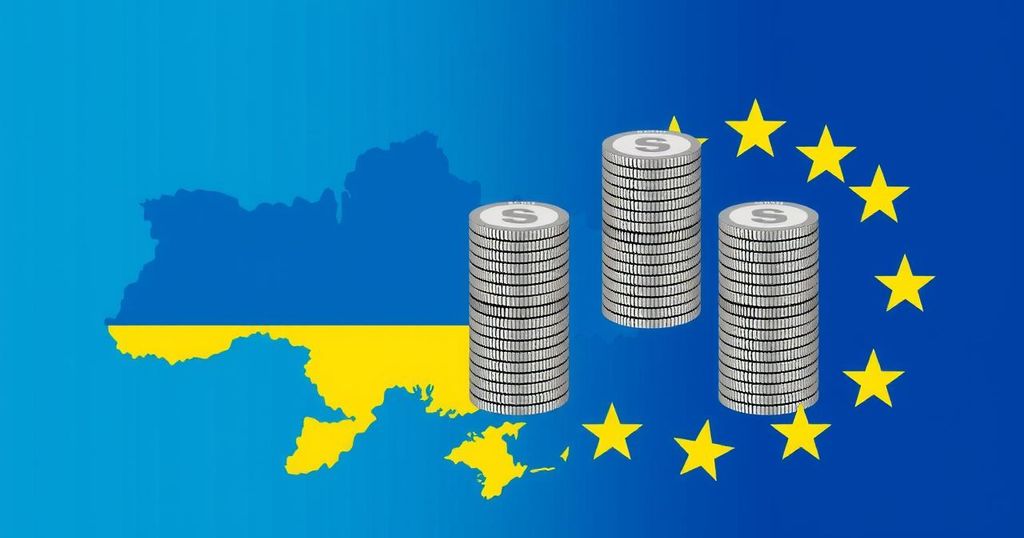EU Allocates €18.1 Billion to Ukraine Amid Ongoing Conflict With Russia

The EU has pledged €18.1 billion ($19 billion) to Ukraine as part of a larger G7 loan, backed by frozen Russian assets, amidst ongoing support for Kyiv in its conflict with Moscow. This funding is crucial given uncertainties about future U.S. aid, following commitments from other G7 nations. Ukrainian officials have lauded this financial aid as both significant and a means to hold Russia accountable.
The European Union has affirmed its commitment to grant Ukraine €18.1 billion (approximately $19 billion) as part of a substantial G7 loan, supported by profits from frozen Russian assets. This financial package emerges from a larger $50 billion loan arrangement established by the G7, aimed at bolstering Ukraine’s defenses during its ongoing conflict with Russia. Notably, the United States has pledged $20 billion, alongside contributions from the United Kingdom, Canada, and Japan. The EU’s funding is especially vital given uncertainties surrounding future U.S. support with potential changes in U.S. leadership. EU official Valdis Dombrovskis confirmed the agreement in a memorandum signed with Ukrainian officials, emphasizing the funds are intended to assist Ukraine’s immediate needs. In response, Ukrainian Prime Minister Denys Shmygal characterized the EU’s contribution as a “bold step,” which not only provides essential aid but also sets a precedent for holding Russia accountable for its aggression. Since the onset of the invasion in 2022, the EU has frozen approximately $235 billion of Russian central bank assets, which form a significant portion of immobilized Russian funds worldwide. The current assistance comes in addition to around €120 billion in support previously provided by the EU and its member states since the conflict began.
The ongoing conflict between Ukraine and Russia has necessitated extensive international support for Ukraine, especially from Western allies. Following Russia’s invasion in February 2022, the need for financial aid and military assistance intensified. The European Union, along with the G7 nations, has been pivotal in providing financial support to Ukraine, leveraging frozen assets belonging to Russia as a means to finance this aid. This strategic move addresses immediate financial requirements while simultaneously applying pressure on Russia to account for its military actions. The situation remains fluid, particularly concerning the shifting political landscape in the United States, raising concerns about future foreign aid commitments.
In conclusion, the European Union’s allocation of €18.1 billion to Ukraine, in coordination with the G7 nations, represents a significant commitment to support Ukraine amidst its ongoing conflict with Russia. This funding not only reinforces Ukraine’s immediate needs but also underscores the broader aim of holding Russia accountable for its actions. With uncertainties surrounding U.S. support, the EU’s proactive approach in financial assistance reflects its vital role in sustaining Ukraine’s resistance efforts during this critical period of unrest.
Original Source: www.seychellesnewsagency.com








